
Uyo: The Heart of Akwa Ibom
Uyo, the bustling capital of Akwa Ibom State in Nigeria, offers a unique blend of cultural heritage and modern amenities. Known for its warm hospitality, Uyo is a destination where tradition meets contemporary life. The city is dotted with lush green parks, historic sites, and a vibrant arts scene, making it a delightful spot for both relaxation and exploration. One of the city's highlights is the Ibom Connection, a symbolic monument representing unity and strength. It's a great starting point for your tour of Uyo. Nearby, you can visit the Ibom Plaza, a central hub for shopping, dining, and entertainment. The plaza comes alive in the evenings with local musicians and vendors, providing an authentic taste of Uyo's lively atmosphere. For nature lovers, the Ibeno Beach, though a bit of a drive from the city, is worth the trip. It's one of the longest beaches in West Africa and offers pristine sands and serene waters. Uyo is also home to the National Museum of Colonial History, where you can learn about the region's past and cultural evolution. The city's culinary scene is another highlight, with local delicacies like Afang soup and Edikang Ikong, which are must-tries for any visitor.
Local tips in Uyo
- Visit Ibom Plaza in the evening for a lively atmosphere with local musicians and vendors.
- Try local dishes like Afang soup and Edikang Ikong at traditional restaurants.
- Plan a day trip to Ibeno Beach to enjoy one of West Africa's longest beaches.
- Check out the National Museum of Colonial History for a deeper understanding of the region's past.
- Consider hiring a local guide to navigate the city and learn insider tips.
Neighbourhoods in Uyo
Uyo: The Heart of Akwa Ibom
Uyo, the bustling capital of Akwa Ibom State in Nigeria, offers a unique blend of cultural heritage and modern amenities. Known for its warm hospitality, Uyo is a destination where tradition meets contemporary life. The city is dotted with lush green parks, historic sites, and a vibrant arts scene, making it a delightful spot for both relaxation and exploration. One of the city's highlights is the Ibom Connection, a symbolic monument representing unity and strength. It's a great starting point for your tour of Uyo. Nearby, you can visit the Ibom Plaza, a central hub for shopping, dining, and entertainment. The plaza comes alive in the evenings with local musicians and vendors, providing an authentic taste of Uyo's lively atmosphere. For nature lovers, the Ibeno Beach, though a bit of a drive from the city, is worth the trip. It's one of the longest beaches in West Africa and offers pristine sands and serene waters. Uyo is also home to the National Museum of Colonial History, where you can learn about the region's past and cultural evolution. The city's culinary scene is another highlight, with local delicacies like Afang soup and Edikang Ikong, which are must-tries for any visitor.
When is the best time to go to Uyo?
Iconic landmarks you can’t miss
Ibom Plaza
Experience the vibrant culture and shopping at Ibom Plaza, the heart of Uyo, Akwa Ibom—a must-visit destination for every traveler.
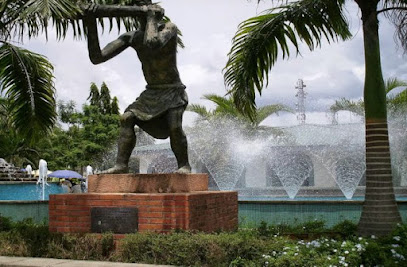
DE CHOICE MALL UYO
Explore the vibrant De Choice Mall Uyo, your ultimate shopping and dining destination in Akwa Ibom, Nigeria.
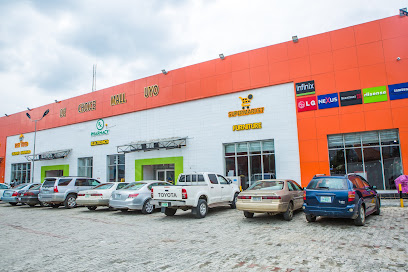
Kilimanjaro Restaurant
Discover the delicious fast food and breakfast options at Kilimanjaro Restaurant, a culinary gem in Uyo, Akwa Ibom.
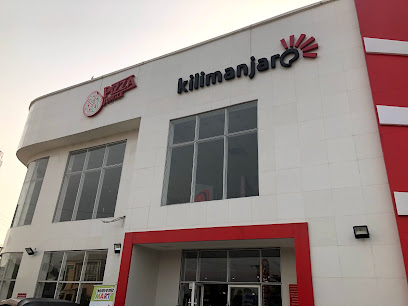
Itam Market Uyo
Explore Itam Market in Uyo, a vibrant marketplace filled with local produce, crafts, and the spirit of Nigerian culture.
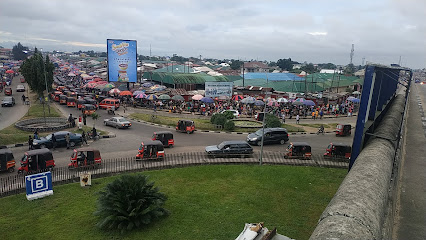
Monty Suites Uyo
Experience luxury and tranquility at Monty Suites Uyo, featuring a stunning golf course and rejuvenating spa services in the heart of Akwa Ibom.

Enistores Limited
Discover the vibrant shopping and dining experience at Enistores Limited in Uyo, where local flavors meet convenience.

Raffia City Plaza
Discover the tranquil beauty and vibrant culture at Raffia City Plaza in Ikot Ekpene, a perfect spot for relaxation and local experiences.
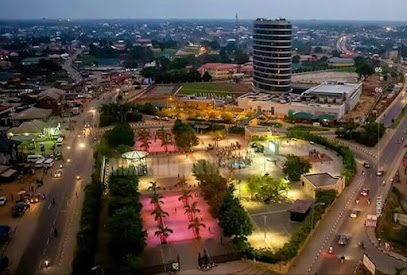
Godswill Akpabio International Stadium
Experience the vibrant atmosphere of Godswill Akpabio International Stadium, a premier venue for sports and cultural events in Uyo, Akwa Ibom.

D'Angelo Hotel
Discover comfort and local charm at D'Angelo Hotel in Uyo, offering modern amenities, a cozy cafe, and a relaxing lounge for all travelers.
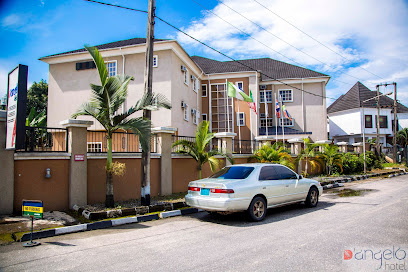
Me Lounge
Experience the vibrant nightlife and local flavors at Me Lounge in Uyo, Akwa Ibom. A must-visit bar for tourists seeking fun and relaxation.
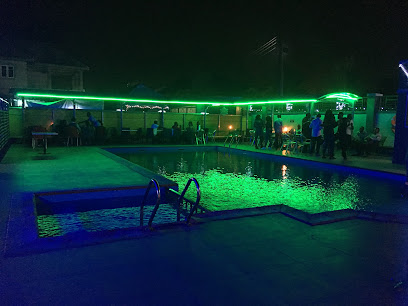
Anipat pet bottles and packaging materials
Discover Anipat Market in Uyo, Akwa Ibom - a vibrant hub for packaging materials and local craftsmanship, perfect for an authentic shopping experience.

New Point Hotel and Suites
Experience comfort and hospitality at New Point Hotel and Suites, your perfect base for exploring the vibrant city of Uyo, Akwa Ibom, Nigeria.
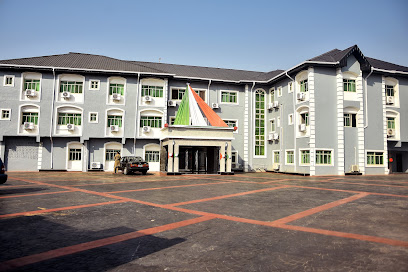
Discovery Park
Experience the natural beauty and tranquility of Discovery Park in Uyo, Akwa Ibom, a perfect escape for relaxation and outdoor activities.
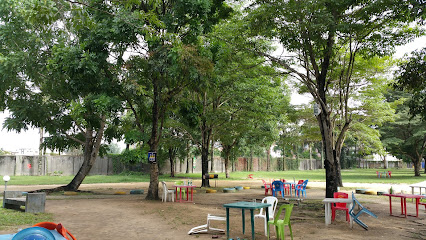
Majesty Realm Hotel
Experience comfort and local hospitality at Majesty Realm Hotel, your perfect base for exploring Uyo and Akwa Ibom's vibrant culture.
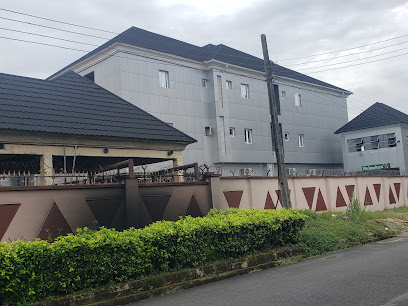
Ibibio Museum
Discover the rich cultural heritage of the Ibibio people at the Ibibio Museum in Uyo, where history and art come alive.
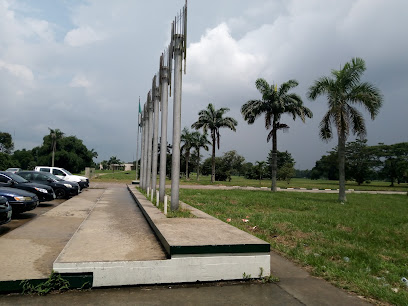
Unmissable attractions to see
Raffia City Plaza
Explore the beauty of nature and culture at Raffia City Plaza, an enchanting park in Ikot Ekpene, Akwa Ibom, perfect for relaxation and discovery.
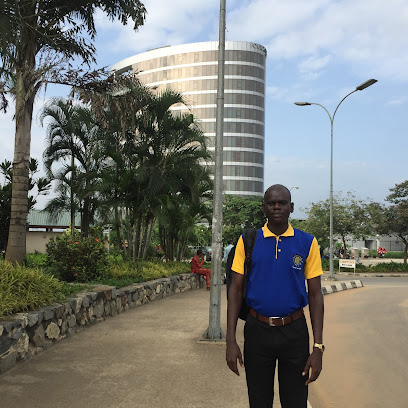
Discovery Park
Explore the serene beauty of Discovery Park in Uyo, a perfect escape for nature lovers and families seeking relaxation amidst lush landscapes.
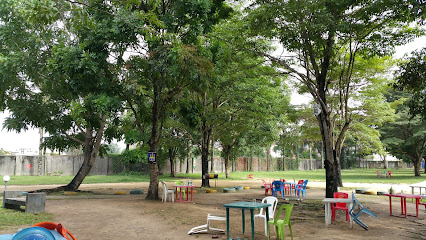
Ibibio Museum
Experience the rich cultural tapestry of the Ibibio people at the Ibibio Museum, a must-visit destination in Uyo, Akwa Ibom.
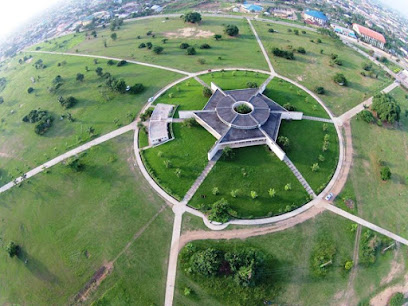
Slave Trade Museum
Explore the Slave Trade Museum in Calabar, a moving tribute to history that educates visitors on the transatlantic slave trade and its lasting impact.
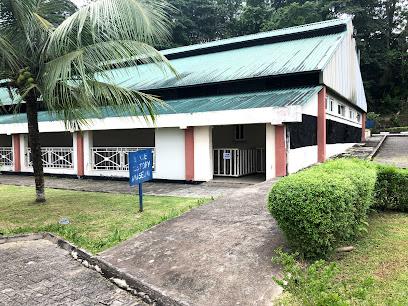
Jubilee Gardens
Experience the tranquility of Jubilee Gardens, a picturesque park in Uyo, Akwa Ibom, perfect for relaxation, exercise, and enjoying nature.
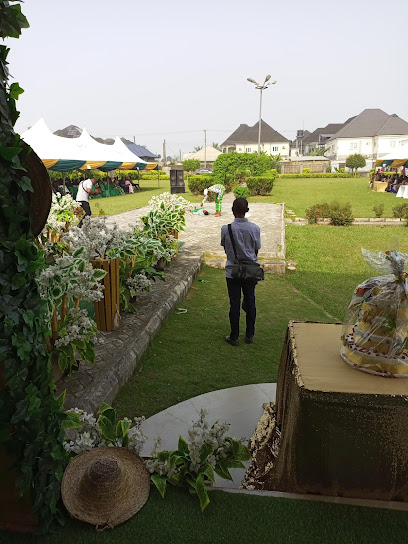
Convocation Park
Discover the tranquility of Convocation Park in Uyo, a serene escape perfect for relaxation, socializing, and enjoying nature's beauty.
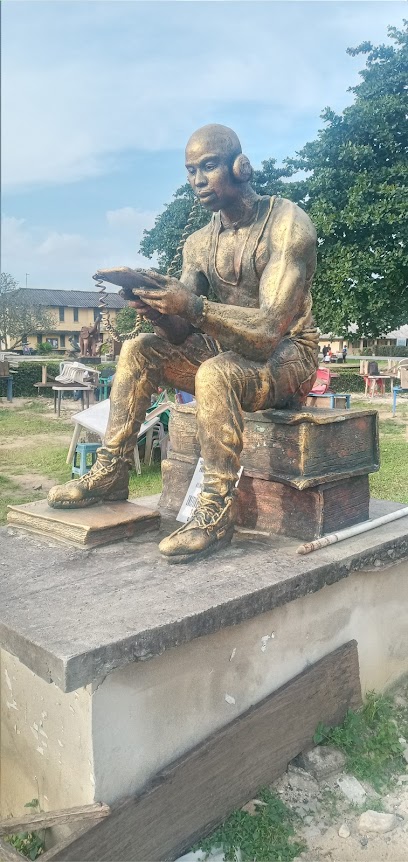
Unity Park
Discover the tranquil beauty of Unity Park in Uyo, a perfect blend of nature and recreation for all visitors.
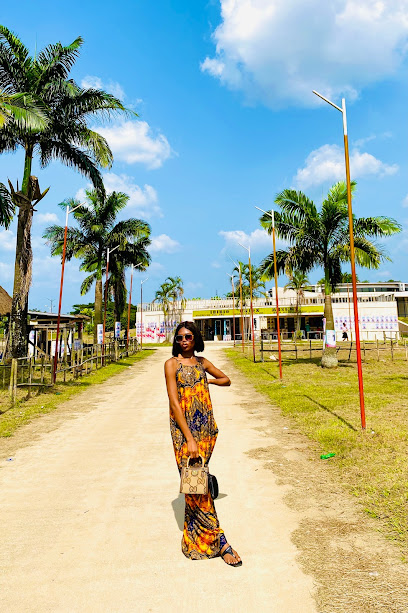
Westbrian Park (formerly G-park Global Resort)
Experience the lush landscapes and serene ambiance of Westbrian Park in Uyo, a perfect destination for relaxation and outdoor activities.

Shelter Afrique Field
Experience the serene beauty of Shelter Afrique Field, a lush park in Uyo, perfect for relaxation, picnics, and exploring nature's wonders.
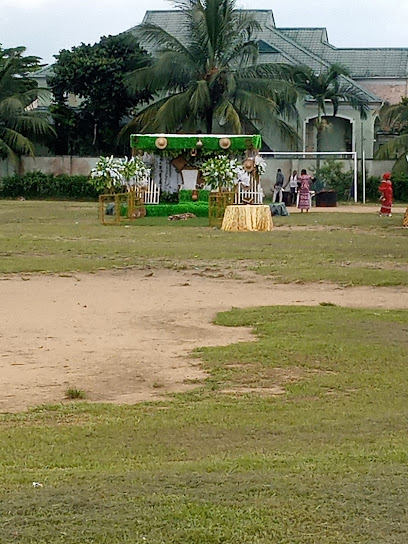
Uyo Green Park
Explore the vibrant greenery and tranquil paths of Uyo Green Park, a perfect escape for relaxation and recreation in the heart of Akwa Ibom.
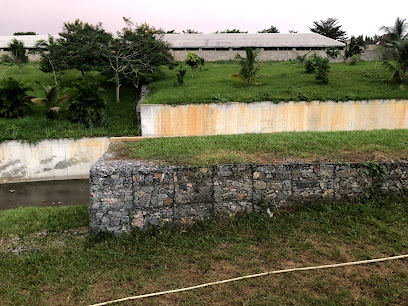
Sculpture Garden
Explore the serene Sculpture Garden in Uyo, a harmonious blend of art and nature perfect for relaxation and inspiration.
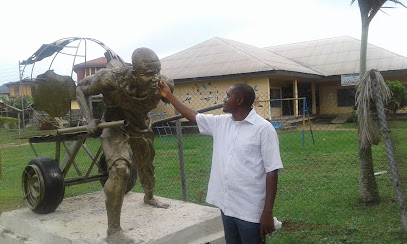
Secretariat Junction
Experience the vibrant culture and lively atmosphere of Secretariat Junction in Uyo, Akwa Ibom - a must-visit hub for every traveler.
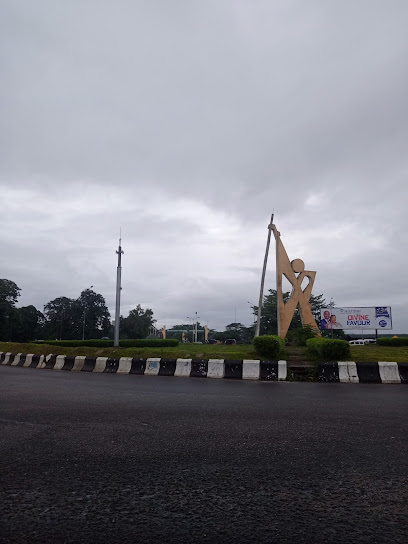
Paul Harris Rotaract Park
Explore the serene beauty of Paul Harris Rotaract Park in Uyo, a perfect escape for nature lovers and families seeking tranquility in Akwa Ibom.
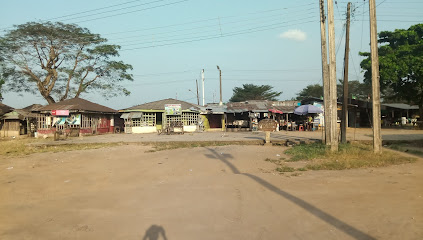
D line field
Discover the lush landscapes and peaceful atmosphere of D Line Field, a charming park in Uyo, Akwa Ibom, perfect for relaxation and family fun.
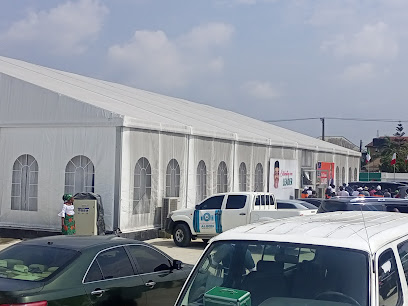
Nigerwives Nigeria Children's Park & Multipurpose Hall
Discover Nigerwives Nigeria Children's Park, a family-friendly destination in Uyo, Akwa Ibom, perfect for fun-filled days and unforgettable events.
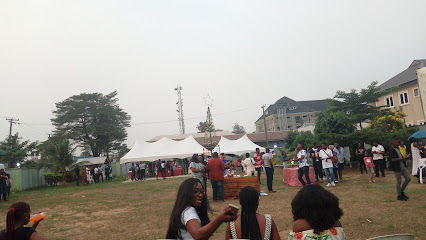
Essential places to dine
Maya Restaurant & Lounge
Discover the best of local flavors blended with international cuisine at Maya Restaurant & Lounge in Uyo - a culinary delight waiting for you.
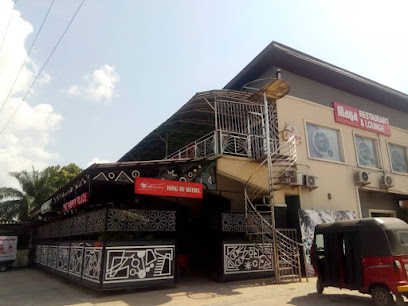
Mummy J Cuisine
Experience authentic Nigerian flavors at Mummy J Cuisine – where every meal tells a story in the heart of Uyo.
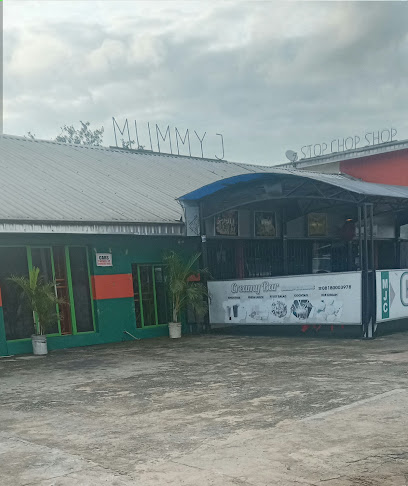
House Twenty
Discover House Twenty in Uyo: Your go-to breakfast haven offering local flavors and delightful dishes in a cozy atmosphere.
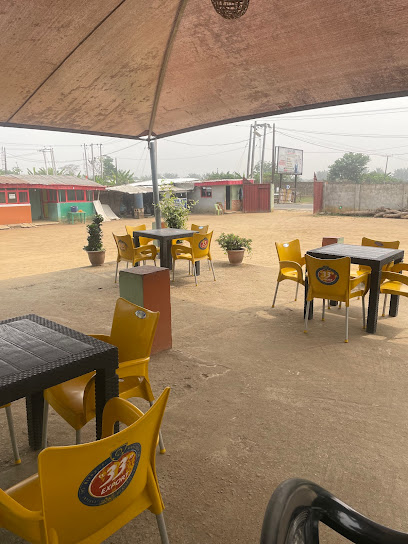
Jess Lounge and Restaurants
Experience delectable dishes at Jess Lounge and Restaurants in Uyo - a must-visit culinary gem offering local and international cuisine.
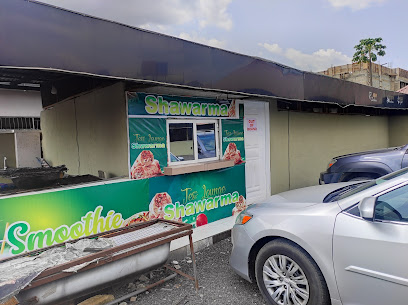
Kitchies Cafe
Discover the flavors of Nigeria at Kitchies Cafe in Uyo – where comfort meets culinary excellence in every bite.
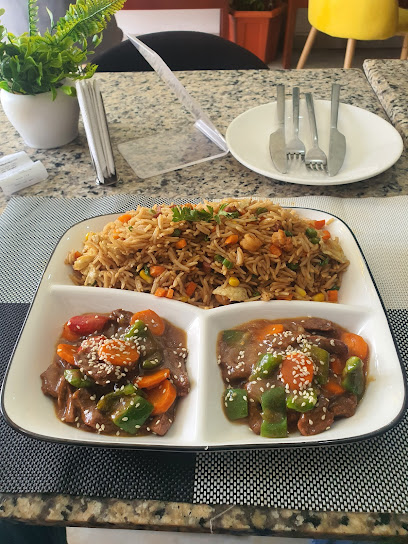
Le’Goshen African Dishes Restaurant
Experience authentic African cuisine at Le’Goshen Restaurant in Uyo - where every dish tells a story.
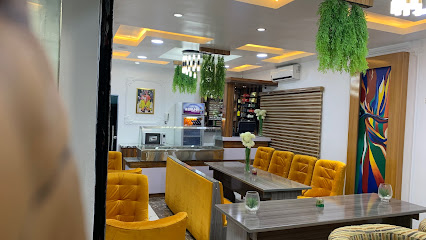
The Outback Grill
Discover a delightful culinary experience at The Outback Grill in Uyo, where every bite takes you on a flavorful journey.
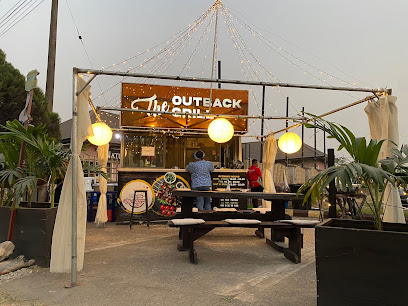
De Venuz Sit-out
Experience authentic Nigerian cuisine at De Venuz Sit-out in Uyo - where every meal tells a story!
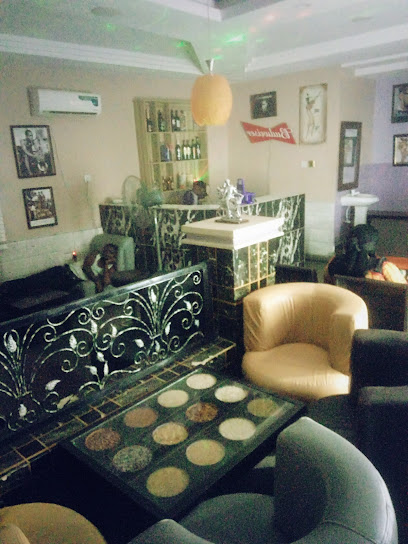
Food House Uyo
Experience culinary delights at Food House Uyo – where traditional flavors meet modern dining in an inviting atmosphere.
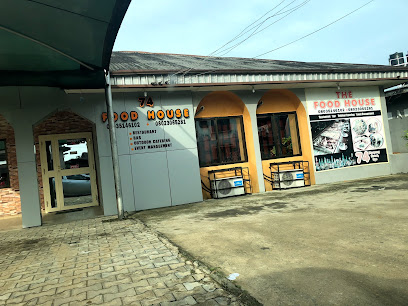
04 Grill
Experience authentic Nigerian cuisine at 04 Grill in Uyo – where local flavors meet culinary excellence.
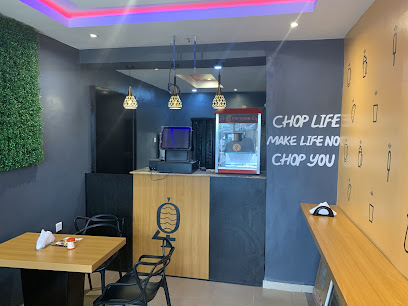
Xquisite Place
Discover Xquisite Place in Uyo - where authentic Nigerian cuisine meets modern dining in a warm and inviting atmosphere.
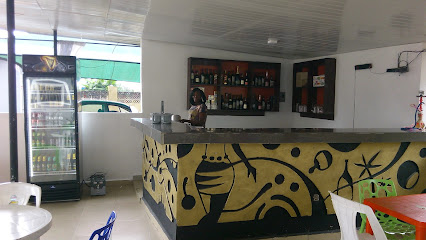
Uyo Kitchen
Experience authentic Nigerian cuisine at Uyo Kitchen, where local flavors meet a welcoming atmosphere in the heart of Akwa Ibom.
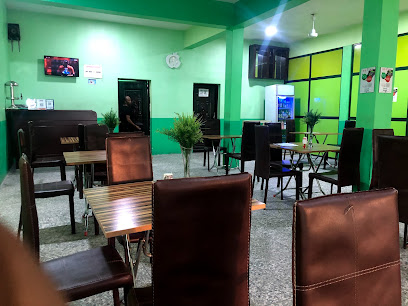
Kani’s Kitchen
Experience the rich flavors of Akwa Ibom at Kani’s Kitchen, where local ingredients meet culinary excellence in Uyo.
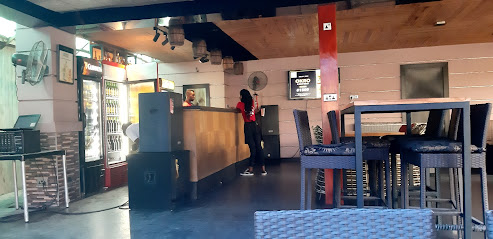
DE’Amala Lounge
Discover delicious local cuisine at DE’Amala Lounge in Uyo – where tradition meets taste in every bite.
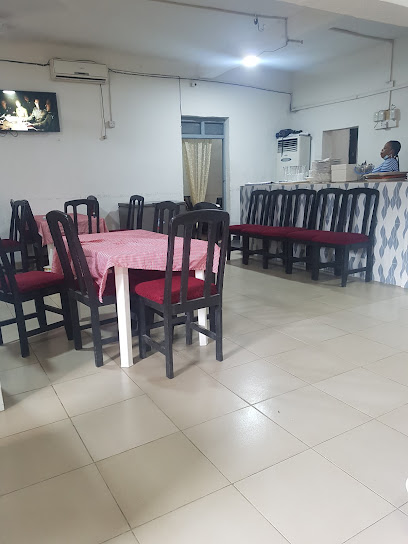
Fraîche Restaurant
Experience exquisite dining at Fraîche Restaurant in Uyo – where local flavors meet international cuisine in an inviting atmosphere.
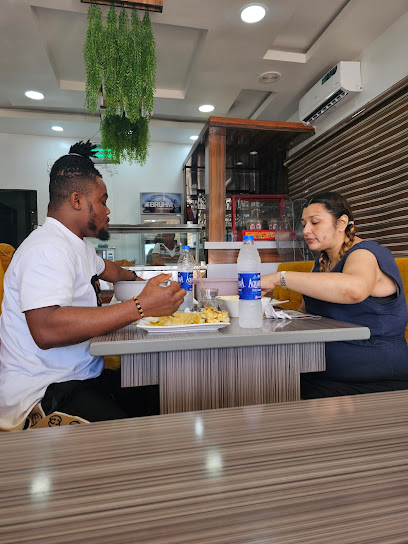
Markets, malls and hidden boutiques
Made In Nigeria Showroom
Explore the vibrant Made In Nigeria Showroom in Uyo for unique local crafts and groceries, showcasing the best of Nigeria's artistry and culture.
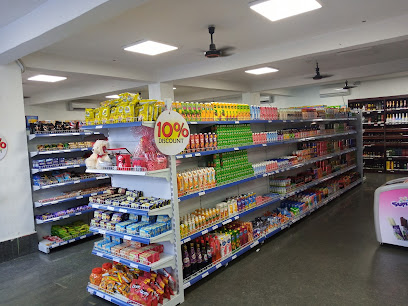
Fashion PLUS
Explore unique fashion at Fashion PLUS in Uyo, a boutique offering stylish clothing, accessories, and local designer pieces to elevate your wardrobe.
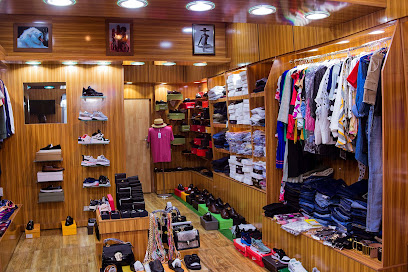
Gifto boutique
Explore Gifto Boutique in Uyo for stylish fashion, local craftsmanship, and unique souvenirs that capture the essence of Akwa Ibom.
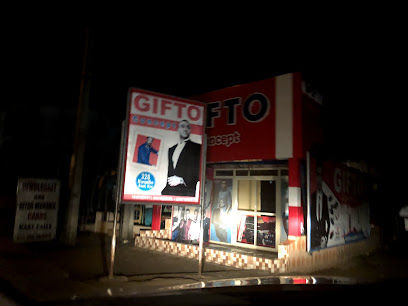
Konga Uyo Store
Explore Konga Uyo Store, your ultimate shopping destination in Akwa Ibom, where great deals and a variety of products await every visitor.
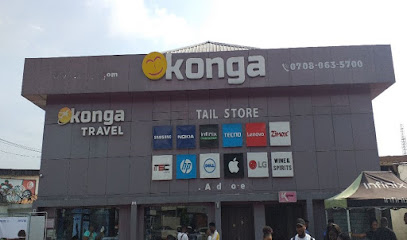
Superior Perfume & Gifts Enterprise
Explore Superior Perfume & Gifts Enterprise in Uyo for unique perfumes and authentic gifts that embody the spirit of Nigeria.
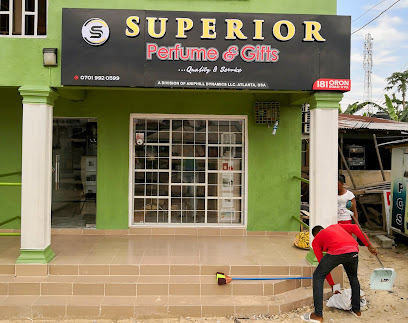
Cha Cha Wears
Explore local fashion at Cha Cha Wears, a boutique in Uyo offering unique clothing and accessories that celebrate the rich culture of Akwa Ibom.
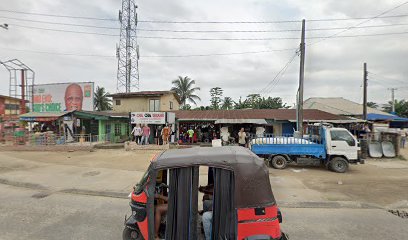
VENNICIO BOUTIQUE. ...YOUR PREFERRED ONE STOP FAMILY SHOP
Explore Vennicio Boutique in Uyo for unique family shopping experiences with local treasures and stylish finds.
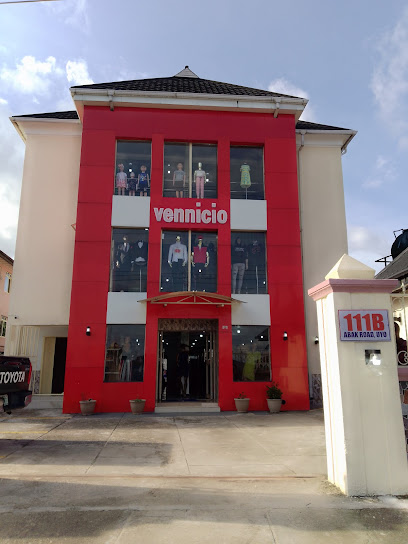
Peaceyz_collections
Explore unique fashion trends at Peaceyz Collections, the ultimate clothing store in Uyo for women and youth apparel.
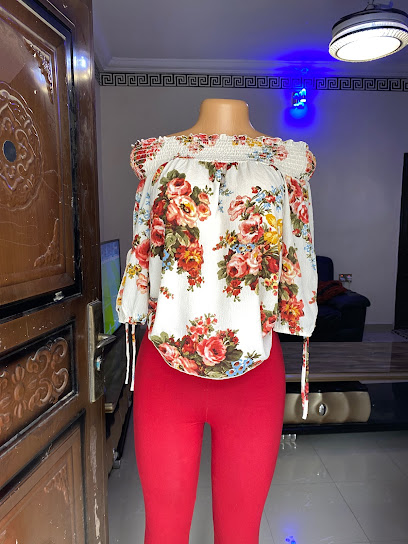
Amazon Collectibles
Explore the vibrant fashion scene at Amazon Collectibles, your go-to destination for stylish clothing and accessories in Uyo, Akwa Ibom.
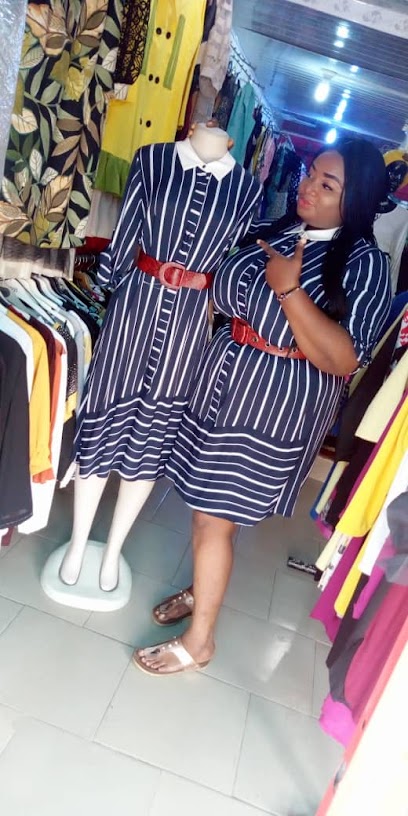
Dranibs Gift & Household Shop
Explore Dranibs Gift & Household Shop in Uyo for unique souvenirs, local crafts, and charming home goods reflecting Nigeria's vibrant culture.

Udee Mart
Discover unique gifts and quality kitchen supplies at Udee Mart, Uyo's premier gift shop for tourists and locals alike.
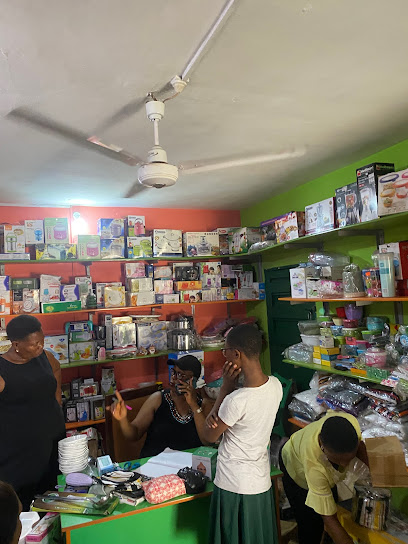
Cheese boutique
Explore a gourmet haven at the Cheese Boutique in Uyo, where artisanal cheeses and expert guidance await every cheese lover.
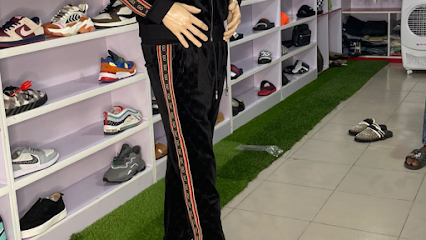
Sunky Shopping Centre
Discover the heart of Uyo at Sunky Shopping Centre, a lively hub for shopping and local culture in Akwa Ibom.

Shop Peaches
Explore Shop Peaches in Uyo for a unique collection of stylish bags that enhance your travel experience and complement your fashion sense.

ADAOWOLUCKY EMPIRE./VICTORIOUS BOUTIQUE ENTERPRISE
Explore Adaowolucky Empire in Uyo for a blend of trendy fashion and luxurious watches, perfect for every discerning traveler.

Essential bars & hidden hideouts
Me Lounge
Discover the lively Me Lounge in Uyo, a trendy bar offering a diverse drink selection and vibrant atmosphere for an unforgettable nightlife experience.
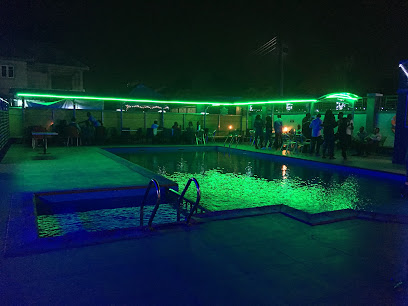
Durap Garden and Lounge
Discover Durap Garden and Lounge: A serene bar in Uyo, Nigeria, where locals and tourists unwind amidst lush greenery and enjoy delightful drinks.
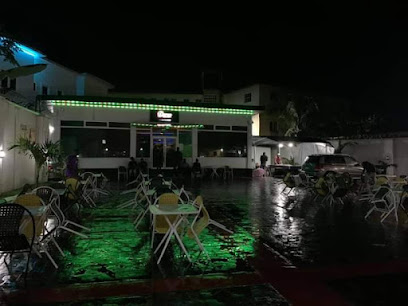
Pegasus Lounge
Experience the vibrant nightlife at Pegasus Lounge in Uyo, where refreshing drinks and a lively atmosphere await you.

Laundry Lounge Uyo
Discover Uyo's vibrant nightlife and culinary delights at Laundry Lounge, the ultimate bar and restaurant experience.
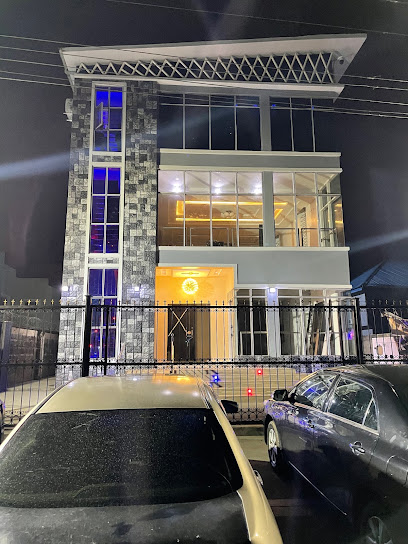
LA-VISTA LOUNGE & BAR
Discover Uyo's nightlife at LA-VISTA LOUNGE & BAR, where vibrant culture meets delightful drinks in a modern setting.
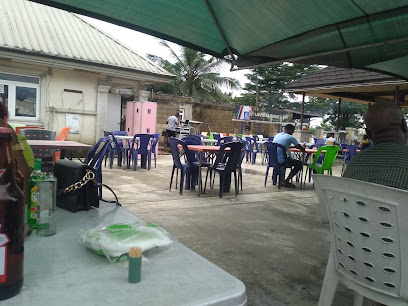
Gems Lounge
Discover the tranquil vibes of Gems Lounge in Uyo, where comfort meets vibrant nightlife and local flavor.
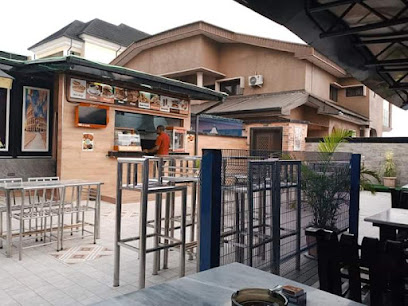
Silver Lounge
Experience Uyo's vibrant nightlife at Silver Lounge, a lively bar in Tropicana Mall offering a delightful mix of local and international drinks.
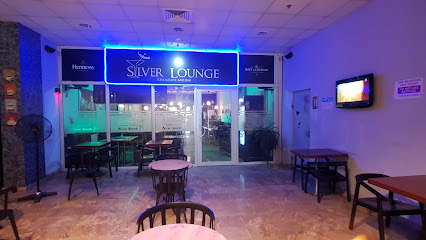
Belle Lounge/Restaurant/bar
Experience the vibrant nightlife at Belle Lounge, Uyo's premier bar offering exquisite drinks and a chic atmosphere.

Café D'Angelo Lounge & Nightlife
Experience the vibrant nightlife at Café D'Angelo in Uyo, where delicious cocktails and live music create unforgettable evenings.
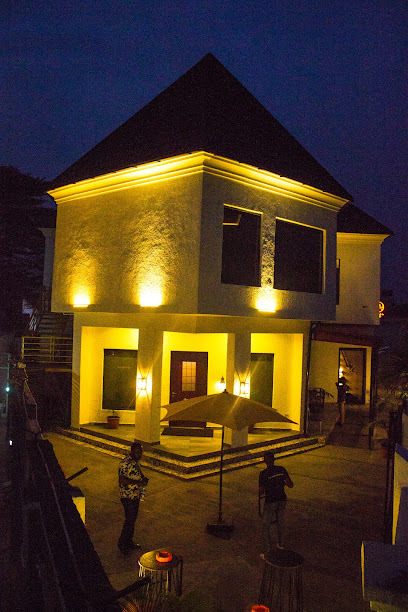
De La Creme Bar
Discover the lively nightlife at De La Creme Bar, where great drinks, music, and a vibrant atmosphere await in Uyo.
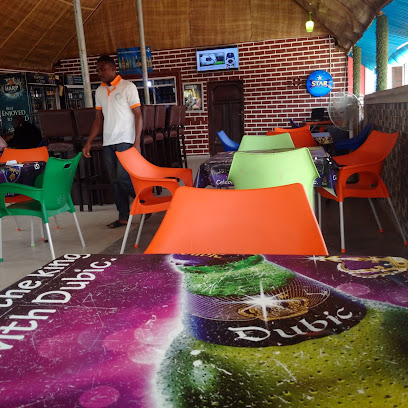
Cool Ice Lounge & Grill
Discover Uyo's nightlife at Cool Ice Lounge & Grill, where delicious food, refreshing drinks, and a vibrant atmosphere await you.
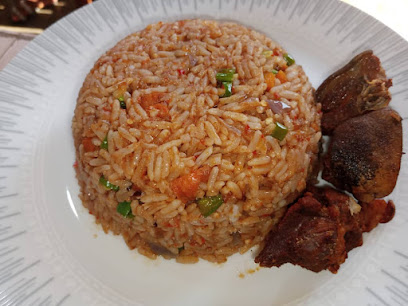
DE SPOT LUXURY BAR
Discover Uyo's nightlife at De Spot Luxury Bar, where elegance meets entertainment in a stylish setting.

Pyramid lounge &grill
Discover the vibrant atmosphere of Pyramid Lounge & Grill in Uyo, where relaxation meets local nightlife in a stylish setting.
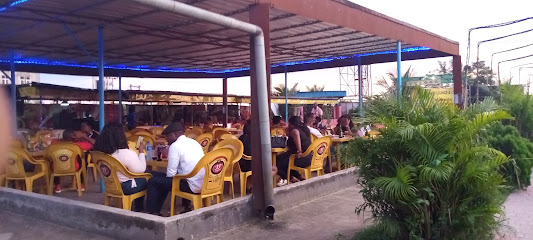
Unique Plaza Bar
Discover the vibrant nightlife of Uyo at Unique Plaza Bar, where local culture and lively atmosphere combine for an unforgettable experience.

Local Phrases
-
- HelloAbadie
[ah-bah-dee] - GoodbyeKaa
[kah] - YesEe
[ee] - NoAma
[ah-mah] - Please/You're welcomeBiko
[bee-koh] - Thank youDaalu
[dah-ah-loo] - Excuse me/SorryKpe kwa
[kpeh kwah] - How are you?Kedu ka i mere?
[keh-doo kah ee meh-reh] - Fine. And you?Onye kere n'obi. O nwe ike?
[oh-nyeh keh-reh n'oh-bee. oh nweh ee-keh] - Do you speak English?O nweghi iko Bekee?
[oh nweh-gee ee-koh beh-keh] - I don't understandA si m na agbago
[ah see mm nah ah-gbah-goh]
- HelloAbadie
-
- I'd like to see the menu, pleaseA dikedike ibe menu, biko
[ah dee-keh dee-keh ee-beh meh-noo, bee-koh] - I don't eat meatA si m na e na ewu
[ah see mm nah eh nah eh-woo] - Cheers!Ndo!
[ndoh] - I would like to pay, pleaseA dikedike ibe i mekwanu, biko
[ah dee-keh dee-keh ee-beh ee meh-kwah-noo, bee-koh]
- I'd like to see the menu, pleaseA dikedike ibe menu, biko
-
- Help!Nye m aka!
[nyeh mm ah-kah] - Go away!Gaa wanye!
[gah wah-nyeh] - Call the Police!Kpoo Police!
[kpoh poh-leece] - Call a doctor!Kpoo doctor!
[kpoh dohk-tor] - I'm lostA chowa
[ah choh-wah] - I'm illA na-aghi
[ah nah-ah-ghee]
- Help!Nye m aka!
-
- I'd like to buy...A dikedike m gara...
[ah dee-keh dee-keh mm gah-rah] - I'm just lookingA na-ebunye
[ah nah-eh-boo-nyeh] - How much is it?Ozi gini?
[oh-zee gee-nee] - That's too expensiveOdiro akara mma
[oh-dee-roh ah-kah-rah mmah] - Can you lower the price?O nweghi iko n'aka?
[oh nweh-gee ee-koh nah-kah]
- I'd like to buy...A dikedike m gara...
-
- What time is it?Kedu otutu bu?
[keh-doo oh-too-too boo] - It's one o'clockO bu otu o keta
[oh boo oh-too oh keh-tah] - Half past (10)Odiro nnyocha (iri)
[oh-dee-roh nn-yoh-chah ee-ree] - MorningUtutu
[oo-too-too] - AfternoonEhihie
[eh-hee-heh] - EveningAbali
[ah-bah-lee] - YesterdayEkele
[eh-keh-leh] - TodayTaa
[tah] - TomorrowOchia
[oh-chee-ah] - 1Otu
[oh-too] - 2Abuo
[ah-boo-oh] - 3Atolu
[ah-toh-loo] - 4Ani
[ah-nee] - 5Isii
[ee-see-ee] - 6Asaa
[ah-sah-ah] - 7Asato
[ah-sah-toh] - 8Asaa-ato
[ah-sah-ah-toh] - 9Ighotara
[ee-ghoh-tah-rah] - 10Iri
[ee-ree]
- What time is it?Kedu otutu bu?
-
- Where's a/the...?Ebee ka...
[eh-beh kah] - What's the address?Kedu adreesi bu?
[keh-doo ah-dree-see boo] - Can you show me (on the map)?O nweghi iko n'dikwa m (na map)?
[oh nweh-gee ee-koh n-dee-kwah mm (nah map)] - When's the next (bus)?Kedu otu ebe ndi ugbua di?
[keh-doo oh-too eh-beh n-dee oog-bwah dee] - A ticket (to ....)Ibe tiketi (si ....)
[ee-beh tee-keh-tee see]
- Where's a/the...?Ebee ka...
History of Uyo
-
Before the advent of colonialism, the region now known as Uyo was inhabited by the Ibibio people, one of the earliest ethnic groups in southeastern Nigeria. These indigenous communities were largely agrarian, living in small villages and practicing subsistence farming. They had a rich cultural heritage, including traditional festivals, folklore, and a highly organized system of governance rooted in age-old customs.
-
With the arrival of British colonialists in the late 19th and early 20th centuries, the region experienced significant changes. Uyo, like many other parts of Nigeria, came under British control, which brought about new administrative structures and the introduction of Western education and Christian missionary activities. The colonial period also saw the construction of some of the first modern infrastructures in the area.
-
One of the most pivotal moments in Uyo's history was the creation of Akwa Ibom State on September 23, 1987. Uyo was designated the capital of the new state, which was carved out of Cross River State. This event marked a significant turning point, leading to rapid urbanization and development in Uyo as it transitioned from a modest town to a bustling state capital.
-
The discovery of oil in the Niger Delta region, which includes Akwa Ibom State, had a profound impact on Uyo's economy. The oil boom brought increased revenue and investment, leading to infrastructural development and a surge in population. Uyo became an important administrative and commercial hub, attracting businesses and professionals from various sectors.
-
Uyo is a vibrant center of Ibibio culture, with numerous traditional festivals and events that celebrate the rich heritage of its people. One notable festival is the Ekpe Festival, an ancient cultural celebration involving masquerades, music, and dance. The city also has numerous cultural institutions, including museums and art galleries that preserve and showcase the history and traditions of the Ibibio people.
-
In recent years, Uyo has seen significant urban development, with modern amenities, shopping malls, and improved transportation networks. The city is home to several educational institutions, including the University of Uyo, which contributes to its reputation as an educational and intellectual center. The ongoing development projects continue to transform Uyo into a modern metropolis while retaining its cultural essence.
Uyo Essentials
-
Uyo is the capital city of Akwa Ibom State in Nigeria. The nearest international airport is the Akwa Ibom International Airport, located approximately 25 kilometers from the city center. Flights from major Nigerian cities like Lagos and Abuja are available. Alternatively, you can fly into Port Harcourt International Airport or Calabar Airport and take a bus or taxi to Uyo. The road trip from Port Harcourt takes about 2-3 hours, while from Calabar, it takes approximately 1-2 hours.
-
Once in Uyo, you have several transportation options. Taxis and motorcycles (okadas) are readily available and are a popular means of getting around the city. For a more comfortable ride, you can use ride-hailing apps like Bolt. Additionally, minibuses serve various routes within the city and are an affordable option. Car rentals are also available for those who prefer to drive themselves.
-
The official currency in Nigeria is the Nigerian Naira (NGN). Credit and debit cards are accepted in most hotels, restaurants, and larger stores. However, it is advisable to carry cash for smaller establishments and markets. ATMs are widely available, but be cautious and use machines located in secure locations such as banks or shopping malls.
-
Uyo is generally safe, but like any city, it is essential to remain vigilant. Avoid walking alone at night, especially in less populated areas. Some neighborhoods, like Use Offot and Ikot Ekpene Road, have reported higher crime rates targeting tourists. Always keep your belongings secure and be cautious when using ATMs. It is also advisable to check with local contacts or hotel staff for updated safety information.
-
In case of an emergency, dial 112 for immediate assistance. Uyo has several hospitals, including the University of Uyo Teaching Hospital, which offers comprehensive medical services. Pharmacies are also available for minor health issues. It is recommended to have travel insurance that covers medical emergencies. For police assistance, you can visit the nearest police station or contact the Akwa Ibom State Police Command.
-
Fashion: Do dress modestly, especially when visiting religious sites. Avoid overly revealing clothing. Religion: Do respect local customs and traditions. When visiting churches or mosques, dress appropriately and follow any specific guidelines. Public Transport: Do be respectful and courteous. Avoid loud conversations and always give up your seat to elderly or disabled passengers. Greetings: Do greet people warmly, a handshake is common, and addressing people with respect is appreciated. Eating & Drinking: Do try local delicacies like Afang soup and Ekpang Nkukwo. Don't refuse food when offered, as it is considered impolite.
-
To experience Uyo like a local, visit the vibrant Ibom Plaza, a popular spot for shopping and socializing. Enjoy local cuisine at street food stalls and local restaurants. Engage with locals, as they are often friendly and eager to share their culture. Don't miss the opportunity to visit the Ibom Tropicana Entertainment Centre for a mix of shopping, entertainment, and dining. For a unique cultural experience, attend a traditional Ibibio dance performance or festival.
Trending Landmark in Uyo
-
Ibom Plaza
-
DE CHOICE MALL UYO
-
Kilimanjaro Restaurant
-
Itam Market Uyo
-
Monty Suites Uyo
-
Enistores Limited
-
Raffia City Plaza
-
Godswill Akpabio International Stadium
-
D'Angelo Hotel
-
Me Lounge
-
Anipat pet bottles and packaging materials
-
New Point Hotel and Suites
-
Discovery Park
-
Majesty Realm Hotel
-
Ibibio Museum
Nearby Cities to Uyo
-
Things To Do in Calabar
-
Things To Do in Port Harcourt
-
Things To Do in Owerri
-
Things To Do in Enugu
-
Things To Do in Malabo
-
Things To Do in Onitsha
-
Things To Do in Mamfe
-
Things To Do in Buea
-
Things To Do in Limbe
-
Things To Do in Asaba
-
Things To Do in Luba
-
Things To Do in Tiko
-
Things To Do in Nkongsamba
-
Things To Do in Douala
-
Things To Do in Dschang













